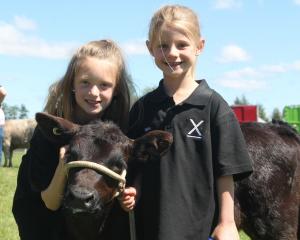
My name is Olivia Copland and I’m here to demonstrate to you that the government has made the wrong decision in replacing lots of New Zealand schools with synthetic nylon carpets, an alternative to wool.
I did a little bit of research on the things we are to be taught on our curriculum and guess what — everything relates back to sustainability.
Whether that’s us as people, the natural resources around us or the buildings we are taught within.
So is the government saying that we can say one thing, but do the other?
Say for instance we are taught as tamariki to respect our kaiako, but only do that if you want to. Picking up rubbish, respecting the environment, don’t worry, only doing that if you can be bothered.
For example, the government is saying we want to be sustainable in everything we do ... but only if the price is right and, if it’s cheap enough, to wipe their conscience about saying one thing but doing another.
We know that 17,000 tonnes of synthetic carpets are shipped into New Zealand every year.
That is the equivalent of 377 school buses a year and it’s made from crude oil.
Nylon manufacturers release nitrous oxide that is 310 times more potent than carbon dioxide.
Synthetic is plastic, which becomes micro plastics, which are really, really small pieces that become airborne when we move around it so — yes — we breathe that in.
I believe that a sustainable product would be great. Wool is 100% sustainable, biodegradable, it helps keep buildings warm in cold spells and cool in hot weather. It is also flame and stain resistant, odour resistant, long lasting and an air filter that’s allergy free. Hang on a minute, we could use woollen face masks to stop us breathing in the microplastics. Now that would be ironic.
Wool is used in lots of different things — there’s even technology turning it into the base of makeups and paints.
lsn’t your mind buzzing about the potential of wool?
But, when we look around us, who knows what we are wearing? ls it biodegradable or what carbon miles did it take to get it to you? So maybe we are all guilty of letting the government think that synthetic was a better option.
If the government gave at least two pairs of New Zealand woollen socks to every school child and government employee, imagine how much of a great example the government would be setting for the country.
Now maths is not my strength, but even I can see that if the government supported New Zealand wool growers and manufacturers, that would mean more tax for the government. If the government is going to spend the money, they might as well help the local economy.
I want to be a proud New Zealander where wool becomes the solution not synthetic pollution, so why don’t we all live what we learn and be the change you want to be.
- Opinion by Olivia Copland













